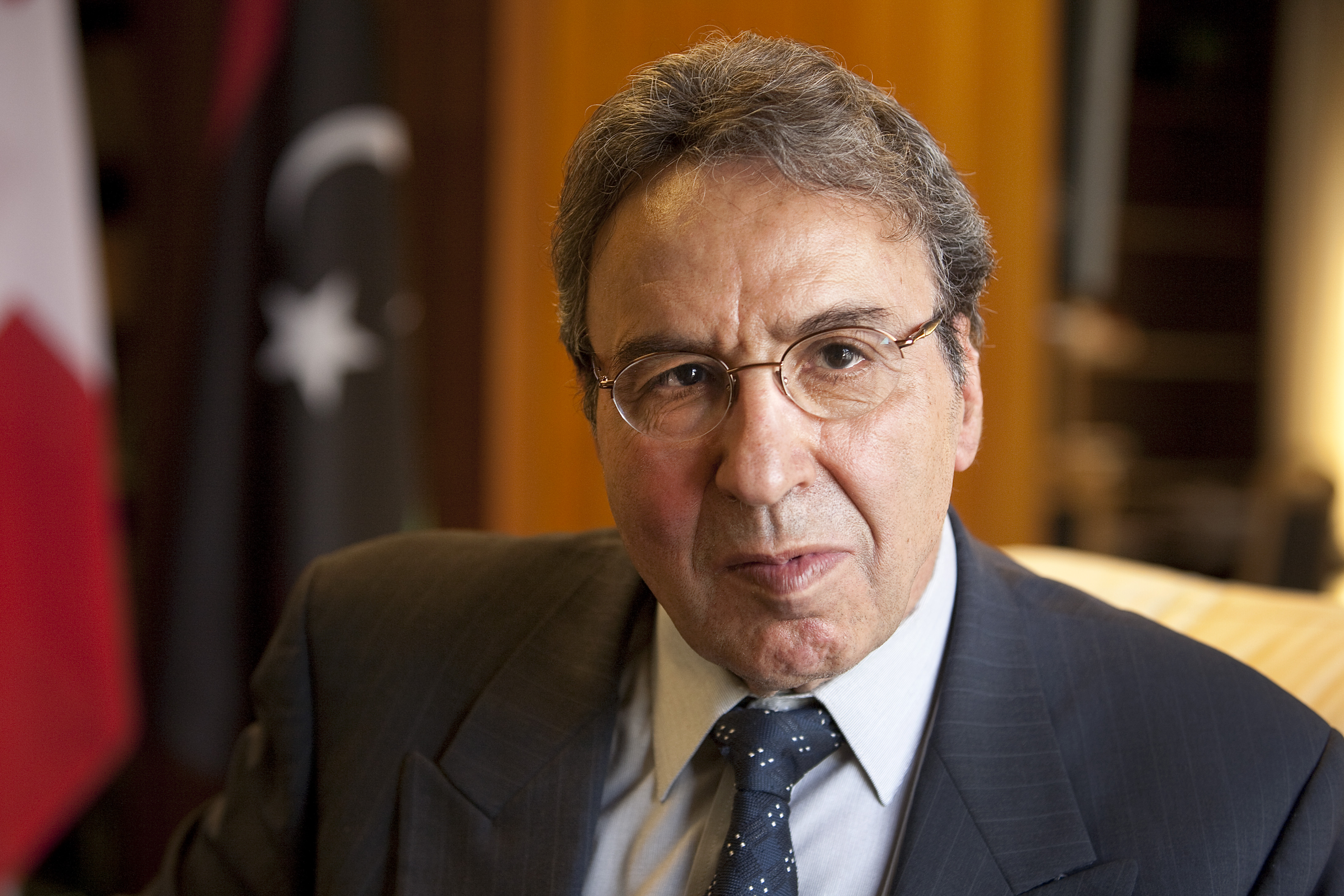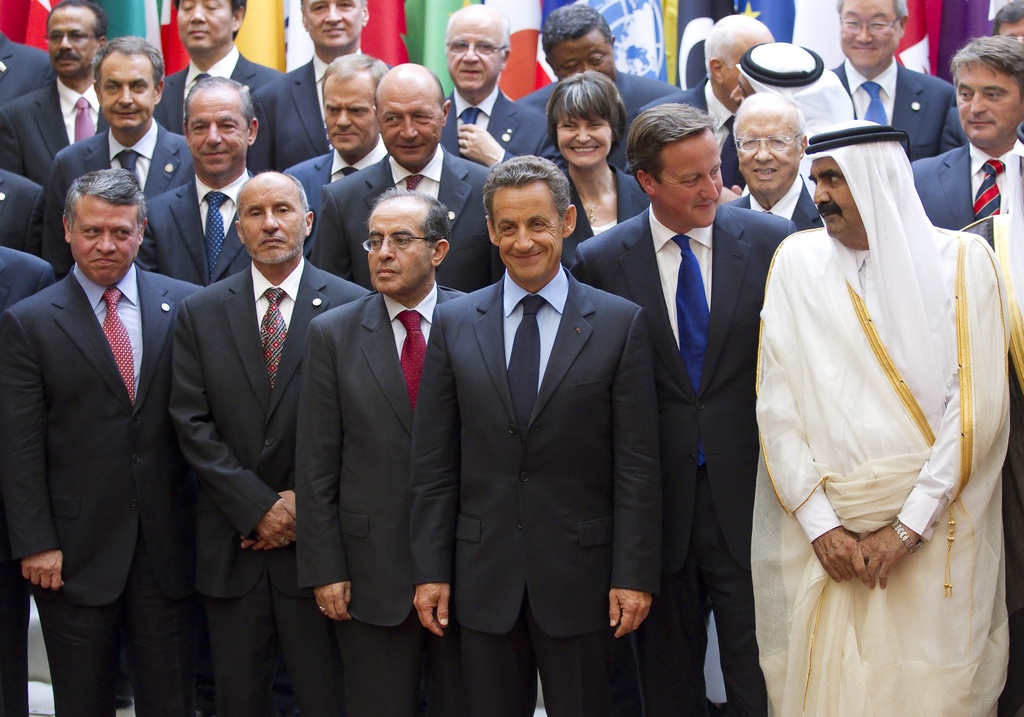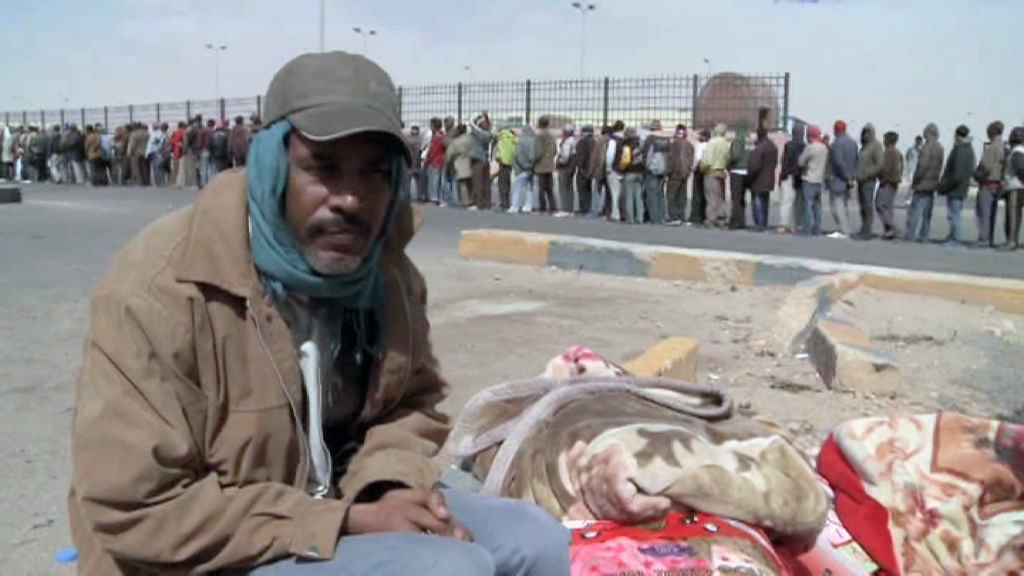“We have no animosity towards the Swiss”

The new Libyan ambassador to Bern says the crisis between the two countries following Hannibal Gaddafi’s 2008 arrest in Geneva is "a page that has been turned".
In his first interview to a Swiss media outlet, Sliman Bouchuiguir says he believes the Libyan side would like to see Swiss companies contribute to the reconstruction process.
Bouchuiguir, who was secretary-general of the Libyan League for Human Rights and holds Swiss nationality, presented his credentials to Swiss President Micheline Calmy-Rey on September 29.
Speaking to swissinfo.ch at the Embassy of Libya in Bern, Bouchuiguir talks about Libyan funds frozen in Switzerland, the desire of Swiss companies to return to Tripoli and the prospect of their contributing to the reconstruction process.
swissinfo.ch: You have been appointed the first ambassador of free Libya to the Swiss Confederation, a shift from human rights defender to diplomat representing the new government. How do you feel?
Sliman Bouchuiguir: It is a strange feeling somehow, as we were always in the opposition ranks because unfortunately we did not have real democratic rule. And now I find myself in the government ranks and I must defend everything the state does… But, God willing, we will work to make the new system a real democracy.
swissinfo.ch: Are you convinced that the system will go in this democratic direction?
Sliman Bouchuiguir: Yes, actually I believe that the new political leadership is honest in its democratic direction, particularly [Libyan Transitional National Council chairman] Mustafa Abd-al-Jalil and [Transitional National Council Prime Minister] Mahmud Jibril. But honesty is not enough, as only work can create the necessary groundwork for making progress and moving forward on the path of democracy and respect for human rights.
The outlines of democracy exist in the interim constitution, which will govern the country for the next two years.
After 18 months, free and fair elections will be held, and Libya will see its first parliament. This parliament will appoint the government, and the government will be responsible to parliament, and so on. In fact, we are going in the right direction [but] work should be done to entrench these rules in law and in everyday dealings.
swissinfo.ch: Does taking up this post in Bern come in the context of normalising Swiss-Libyan relations, which deteriorated over the arrest of Moammar Gaddafi’s son Hannibal? And how do you assess these relations today?
S.B.: We are looking forward to seeing an improvement in relations. We have no animosity or anything against the Swiss government.
…The Swiss can help us in several areas, as it is in their interest and the interest of the international community that Libya becomes a democratic country that respects rights, defends freedoms, and is a part and parcel of the international community.
swissinfo.ch: Can we say now that the Hannibal page has been turned and the situation between the two countries has returned to normal?
S.B.: …Through talking with the Libyan leadership, which refuses to mention this black era and says it was just a temporary phase in Swiss-Libyan relations, it has become clear that we have turned a new page. And you know that Switzerland has appointed a new ambassador to Tripoli [Michel Gottret].
As you know, we now have Swiss branches of the Médecins Sans Frontières organisation in Misrata and Benghazi. We also have patients who will come to Switzerland for treatment in the coming few days. We have signed agreements with Geneva cantonal hospital, and we are seeking to sign an agreement with the Vaud cantonal hospital in Lausanne (CHUV) as well as with Bern’s university hospital.
I think they will receive some serious cases of wounded people who will come from Tunisia after hospitals there failed to treat them. Doctors in Tunisia asked us to move the wounded to hospitals with advanced technology, such as Swiss hospitals.
swissinfo.ch: As for the Swiss companies that have been obstructed over the Hannibal crisis, have they now returned, or do they intend to go back?
S.B.: In fact, we are in the process of contacting the Swiss chambers of commerce, particularly in Lausanne, Zurich and Geneva. The main problem is that we want to have a roadmap for reconstruction, and the chambers of commerce in particular told us that it would be better if they obtain the reconstruction draft so that they could distribute it to companies and contribute to it. For our part, we attach very great importance to the Swiss contribution to this process of reconstruction.
swissinfo.ch: Have the Libyans specified the dossiers or areas where the Swiss can play a role? And is there any estimate of the total cost of the reconstruction process?
S.B.: Preparations are underway with regard to a precise reconstruction plan. The experts working on this plan may need to rely on well-known Swiss expertise in the area of evaluation and planning.
According to the prime minister, the reconstruction cost is estimated at $500-700 billion, an amount that Libya cannot afford alone. For this reason, there is a need for a contribution by foreign companies to restore the economic situation as soon as possible.
In fact, the Swiss can contribute in various sectors, given their expertise in the areas of development and the technology leading to sustainable development, and also in the fields of advanced technology and the construction of infrastructure, including roads, electricity, wired and wireless communication, and others.
Swiss companies are also known for their high quality work in the areas of technology and services.
An incumbent Libyan minister spoke about the possibility of the Swiss contributing to the revitalisation of the tourism and hotel sector. I personally hope that the Swiss will take over the dossier of tourism as they have great experience and have year-round, not seasonal, tourism. So, the country is open and the potential is there for both sides to benefit.
swissinfo.ch: One of the issues to be resolved for the Libyan side is the release of frozen funds in Swiss banks. Do you have an estimate of their potential value, and what is the latest on the talks regarding their release?
S.B.: In fact, there are two types of frozen assets. There are assets that belong to the Libyan state. These assets do not constitute any problem for the government of Switzerland. They informed us that these funds were in the region of $760 million. These funds are now in the Swiss National Bank. President Calmy-Rey announced at a Paris meeting in support of the Libyan government on September 1, 2011 that the Swiss government was ready to release $380 million directly.
…We are waiting for an appointment with the Swiss National Bank to start determining the procedures to implement what the president said regarding the $380 million. We will discuss the remaining funds later on.
There are also the assets which belong to individuals close to Gaddafi and his family. The Swiss government does not interfere with these assets, and no one can provide an estimate of their value. But the Swiss government has offered to provide us with legal assistance regarding these funds…
UN professional career
After his dismissal from the Faculty of Economics and Commerce at the University of Benghazi in April 1976, Sliman Bouchuiguir left Libya after he and ten of his colleagues received threats from the “revolutionary vanguards”, which were headed by Abd-al-Salam Jallud.
He then joined the United Nations in New York, where he assumed a number of roles and posts between 1978 and 2003, including the UN peacekeeping mission in Cambodia, the UN mission of experts in the Northern Cape in South Africa and the mission of the team of experts to oversee the elections in the southeastern region of Haiti, which President Aristide won in 1995.
Opposition
He participated in 1974 in the establishment of the league of Libyan students in Washington which then formed the general union of Libyan students in America.
In January 1976 he took part in the storming of the Libyan embassy headquarters in Washington and staged a sit-in there, in solidarity with the students of Benghazi following an uprising.
In July 1976 the authorities confiscated his passport and prevented him from travelling abroad, along with some of his colleagues who were identified as “instigators wanting to form a front against the great September revolution”.
In November 1980 he participated in the foundation of the opposition Libyan National Democratic Front.
In March 1989 he contributed to the establishment of the Libyan League for Human Rights, together with 157 people.
He delivered a speech on behalf of the league at the Geneva-based Human Rights Council session on February 25, 2011. During that session, a decision was taken to freeze the membership of the Gaddafi regime in the Council.
First Swiss merchants settle in Libya at the end of the 19th century.
Switzerland recognises the new state immediately after Libya’s independence declaration in 1951.
Swiss geologists, technicians and other experts settle in Libya as the oil industry there develops.
From 1962, the Swiss embassy in Tunisia represents Swiss interests in Libya.
In 1965 a consulate opens in the Libyan capital Tripoli, and an embassy opens in 1968.
The temporary detention of Hannibal Gaddafi in Geneva in mid-July 2008 leads to political tensions between Libya and Switzerland.
The Libyan authorities react by taking measures against Swiss nationals and companies in Libya.
On February 23, 2010, one of two Swiss citizens who had been prevented from leaving Libya is permitted to return to Switzerland. The other is released on June 13, 2010, after serving a four-month prison sentence for visa violations, and immediately returns home.
(Adapted from Arabic by Muhammad Shokry)

In compliance with the JTI standards
More: SWI swissinfo.ch certified by the Journalism Trust Initiative





You can find an overview of ongoing debates with our journalists here. Please join us!
If you want to start a conversation about a topic raised in this article or want to report factual errors, email us at english@swissinfo.ch.